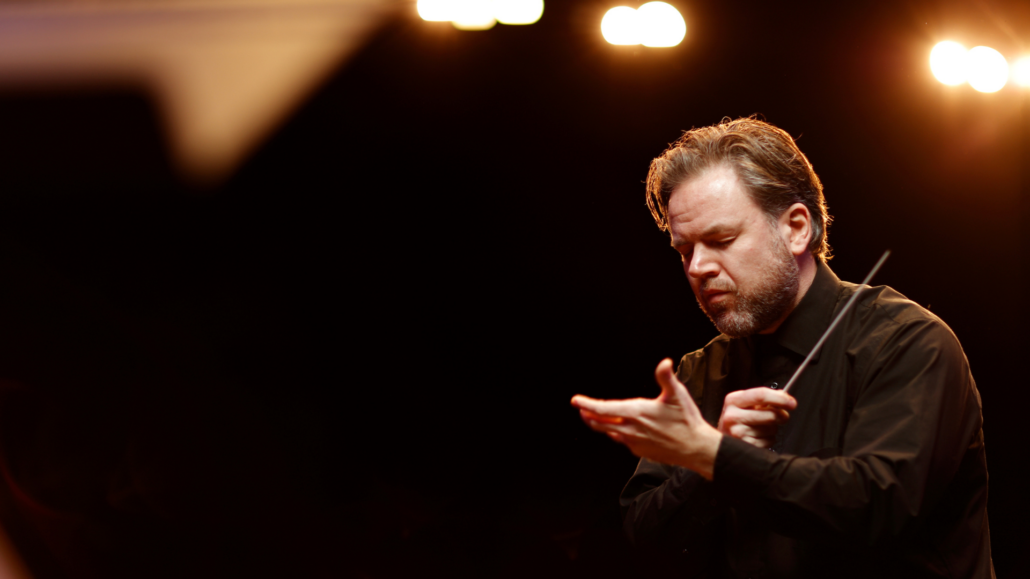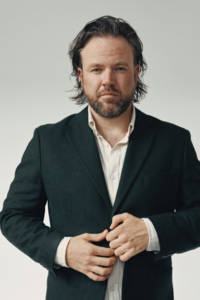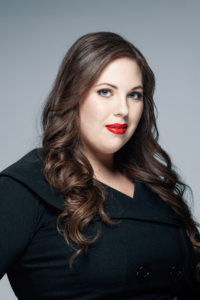KLUXEN – STRAUSS’ FOUR LAST SONGS
How does it feel when your world falls apart?
This, alas, might be a situation that many of us have experienced first-hand. Few in today’s audience have witnessed their world crumble so dramatically, or had it so comprehensively razed, as did Richard Strauss and Dmitri Shostakovich, both of whom endured tumult, destruction, and personal danger in the years before, during, and after the Second World War. But, the miracle that this concert celebrates is that both composers immortalized their times in music, albeit in different and distinctive ways.
Strauss was 84 when he finished work on his penultimate masterpiece, Four Last Songs, and he was well aware that his time on earth was drawing to a close. He was also mourning his country’s disastrous turn towards authoritarianism in the 1930s and by all accounts deeply regretful of his own complicity as president of the Reichsmusikkammer (Reich Chamber of Music) in the early days of Nazi power. So it is entirely understandable that his last lieder are melancholy, elegiac, and perhaps even wistful, although that seems too weak a word for music of such emotional heft. And yet for his texts, three of them early works from the poet and novelist Hermann Hesse, he chose words that celebrate life’s cyclical nature—not just its endings, but its buddings and blossomings. Out of the “dusky vaults” of an old man’s dreams, conjured up in the first lines of “Frühling”, spring memories of rose gardens and past loves, along with the hope of an immortal soul. For all his sorrow, his mistakes, and his losses, Strauss must have found consolation in the knowledge that no matter what the afterlife would bring, if it would bring anything at all, his music would endure.
Shostakovich’s Symphony No. 10 in E minor is more open to interpretation, as the great Russian master of musical codes and ciphers wrote few, if any, works that sustain only a simple explanation. What we know is that it premiered in 1953, eight months after the composer’s mercurial patron and tormentor Joseph Stalin died. It may have been composed as early as 1951, and deemed unperformable while the dictator was still alive. “It’s about Stalin and the Stalin years,” Shostakovich is reported as having said, but he quickly muddied the waters, noting that while “the second part, the scherzo, is a musical portrait of Stalin, roughly speaking….there are many other things in it.”
Including, perhaps, a sonic portrait of battle, but are the violins in the first movement heroic or hysterical? And while Shostakovich embedded a musical interpretation of his muse and student Elmira Nazirova’s name in the third movement, it sounds more like a confession of doubt than a declaration of love.
While it is certainly possible to enjoy the Symphony No. 10 on a purely sensual level—Shostakovich’s textures are never less than rich, strange, and complex—it’s best to enter it with a questioning mind. For Victoria Symphony music director Christian Kluxen, who will conduct, this program embodies the motto inscribed over the entrance to Copenhagen’s Royal Opera: “Ej Blot Til Lyst”, or “Not Just for Pleasure”.
“At times when the world is at war and facing immense troubles, it feels meaningless to begin a symphony season with glamour and a festive mood,” he explains. “We as a symphony are not only here to entertain but also to give our audience a chance to reflect on the world, and on life. These works were composed against the background of a war in which the world that shaped both composers was burnt to the ground. But even darkness becomes light when music remains alive to offer reflection.”
The Four Last Songs, he continues, find Strauss meditating upon what gave his long and productive life meaning: love, music, the passing seasons, and warm times with friends. Shostakovich, in contrast, has fewer joys to look back upon but faces an uncertain future with courage and resolve—a “younger solution”, Kluxen maintains, and one that is “bold, barbaric, and brave”.
Barbarism is rare in the concert hall, even when Shostakovich is on the program, but Kluxen and the Victoria Symphony have planned a 2024-25 season that is suffused with brave and bold music, provocative juxtapositions, stellar guest artists—and pleasure, too. In a world of turmoil that, at least, is certain.
Notes by Alex Varty



 Christian Kluxen, conductor
Christian Kluxen, conductor Aviva Fortunata, soprano
Aviva Fortunata, soprano